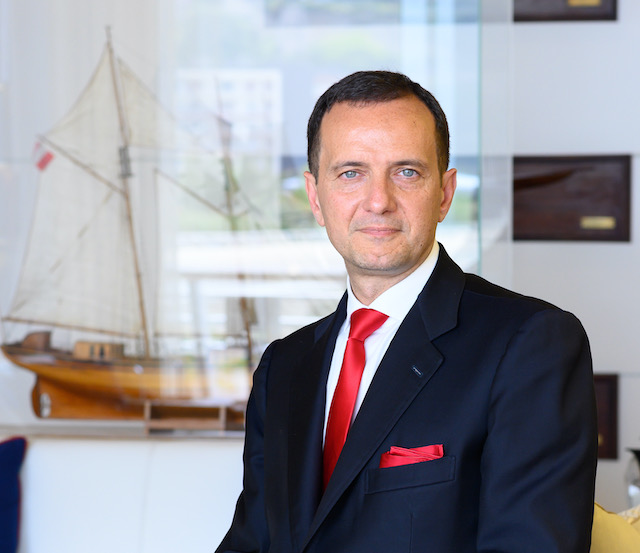Giuseppe Ambrosio, President of the Monaco Single and Multi-Family Office International Association and Honorary SVG Consul in Monaco, speaks to Monaco Life about the main issues facing family offices today.
[ihc-hide-content ihc_mb_type=”show” ihc_mb_who=”2″ ihc_mb_template=”1″ ]
Monaco Life: What is the Monaco Single and Multi-Family Office International Association?
Giuseppe Ambrosio: The association involves 30 family offices in Monaco and we interact on certain subjects linked to the Monaco ecosystem, such as banking and investment opportunities. We could also bring some matters to the attention of the government and local institutions if it is a relevant problem for the community.
Why was it created?
It began when a few multi-family and single-family offices decided to come together because they have common needs in regards to banking and they wanted to create a safe place to meet. One of the main objectives was to have a conference or meeting once a year where they could talk to and meet other family offices that were not based in Monaco, and also give Monaco family offices special access to other foreign family offices during the best investment forums around the world.
What trends can you see in the decade to come?
A significant issue for family offices is going to be technology, because most heads of family offices come from another era – one that is not digital – and it will be a big challenge for them to adapt, because technology comes with great opportunity but also great risks.
There is the digitisation of processes, social media, artificial intelligence… so what can people do? They can undergo training, but the smartest thing, I suggest, is they accelerate the succession. The next generation is more used to dealing with technology. There will be cases when this doesn’t apply, but in general I think it does work because it creates opportunities for the family to work at another pace.
What are the challenges facing the issue of succession?
I think the most difficult thing is to have a patriarch who is willing to hand it over. Succession fails, firstly, because there is no plan. A plan involves timing, training and awareness. The key is to have a patriarch who is conscious of handing it over at the right time. This doesn’t necessarily have to happen when they die, indeed it should happen before that point and when other family members are ready. If families need to sell a company, it is better to do it when they have a plan, rather than giving the family another reason to become contemptuous. So, timing is very important, as well as training and consciousness.
What are the other challenges facing family offices?
Some family offices at a point in time will sell their company or part of their company and this creates a liquidation event; sometimes it is so major that it transforms the nature or purpose of the family office. For example, if a family office who is managing a few apartments sells its company and tangible assets, then the family office ends up with a huge amount of liquidity and becomes more of a financial family office, but not everyone is capable of dealing with that. Imagine you are a property manager then overnight you become a fund manager. How would you physically manage the investments and the portfolio risk? So, what happens is they have this big liquidation event that changes the nature of what they do and if they are not prepared, they can invest in the wrong asset. The challenge is to upgrade, train and recruit within the family office so that the structure is well equipped to manage this financial risk, otherwise you end up delegating your funds to your property manager, and it sounds ridiculous but this is exactly what can happen.
The 2016 EY Family Office Guide estimates at least 10,000 single family offices now exist worldwide, half of which have been established over the past 15 years. Why do you think there has been such an increase in family office activity?
The growing popularity of family offices is directly related to the situation with banks and the financial crisis. It is a new era.
Another issue is confidentiality. When you outsource significantly, you risk, for example, the wrong people getting hold of information. It is a way of controlling information.
Wealth is growing so it also makes more sense for a family to manage their wealth in-house, rather than outsourcing everything. A family office saves money, time, and protects confidentiality.
What are the main differences between a single family office and a multi-family office?
The single family office is not a business, and it has no clients. It is not liable for corporation income tax and normally is not VAT registered.
Multi-family offices can provide services for a family’s assets without them having to bear the costs, which makes economic sense for some families that have no intention of setting up a structure of their own. MFOs have more than one family as clients and they are considered a commercial entity, therefore they will pay corporation income tax and they will be registered for VAT purposes. In Monaco, provided they get the due additional authorisation from the CCAF (Commission de Contrôle des Activités Financières), the current law allows them to also provide financial advice and trade execution services, but these are an add-on to the normal MFO license.
What is the next interesting event under the patronage of the association?
Invest SVG, the equivalent of Monaco Invest, will be hosting an inward Foreign Direct Investment Forum titled ‘ST Vincent and the Grenadines Investment Forum (SVGGIF 2020)’ from 2nd to 5th May. The objective of the forum is to offer SVG friends and business partners a unique and exclusive opportunity within the region for foreign direct investment and to implement ESG guidelines in the respect of sustainable growth. Only members of the association will be invited and will be offered participation and catering.
[/ihc-hide-content]
Interview: Giuseppe Ambrosio
